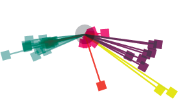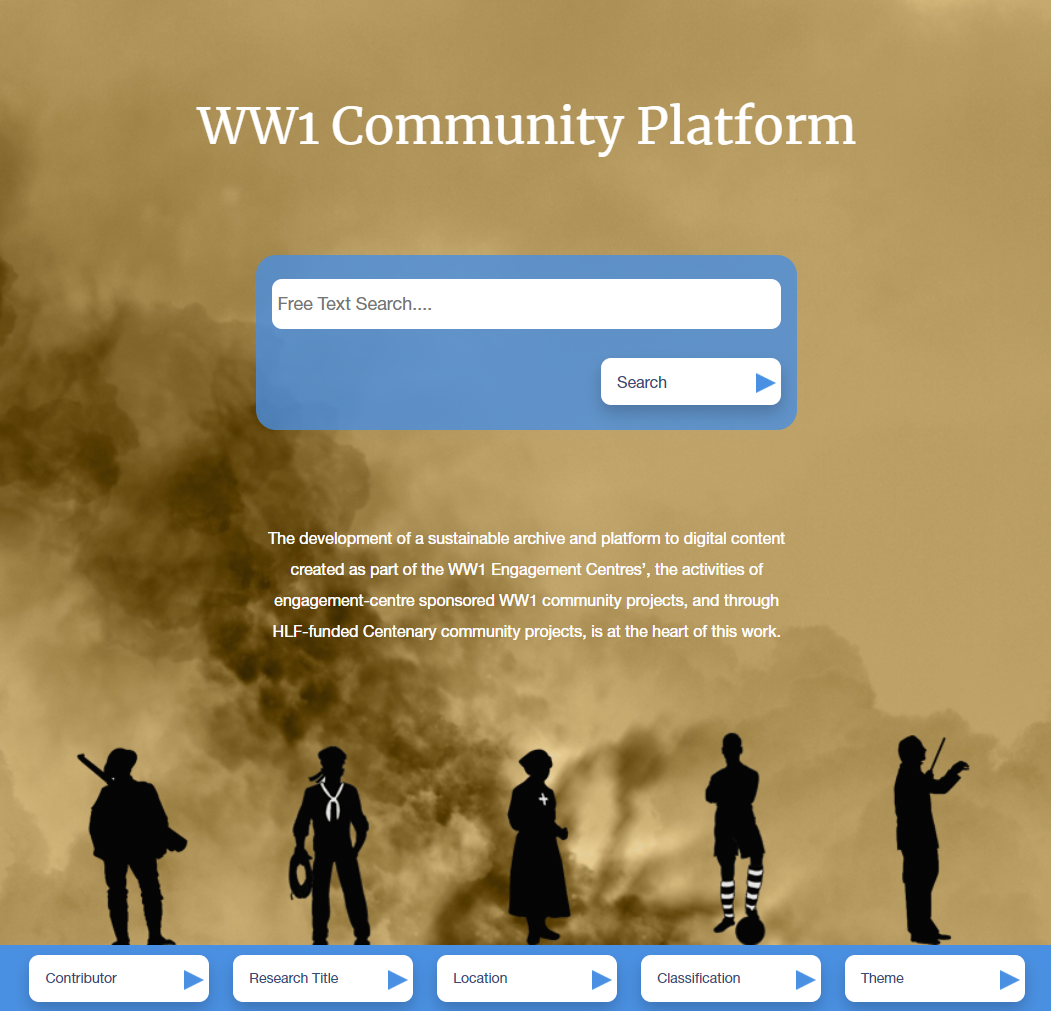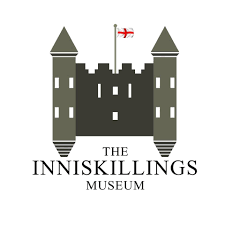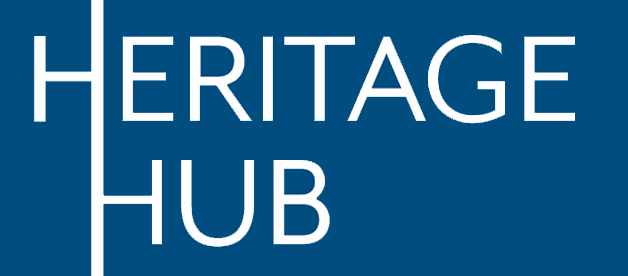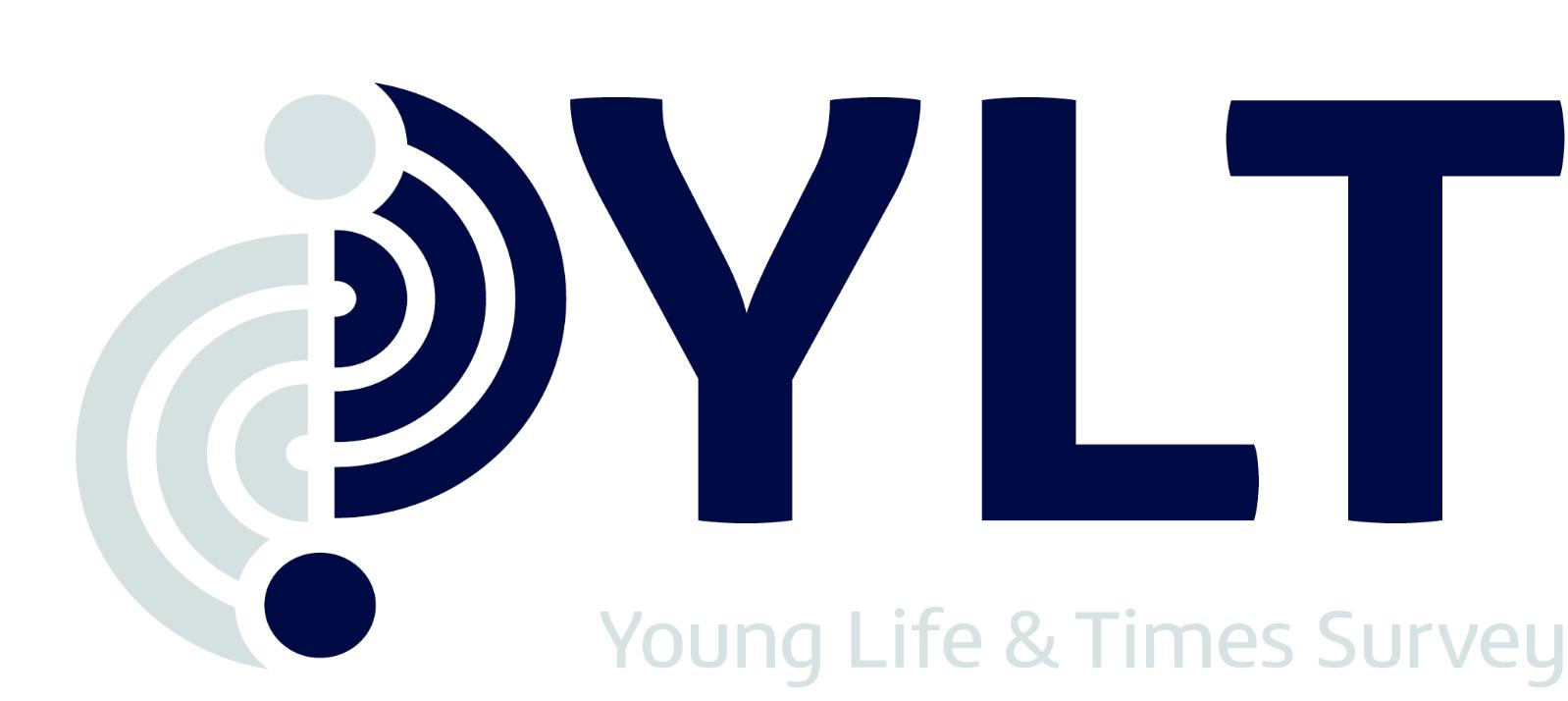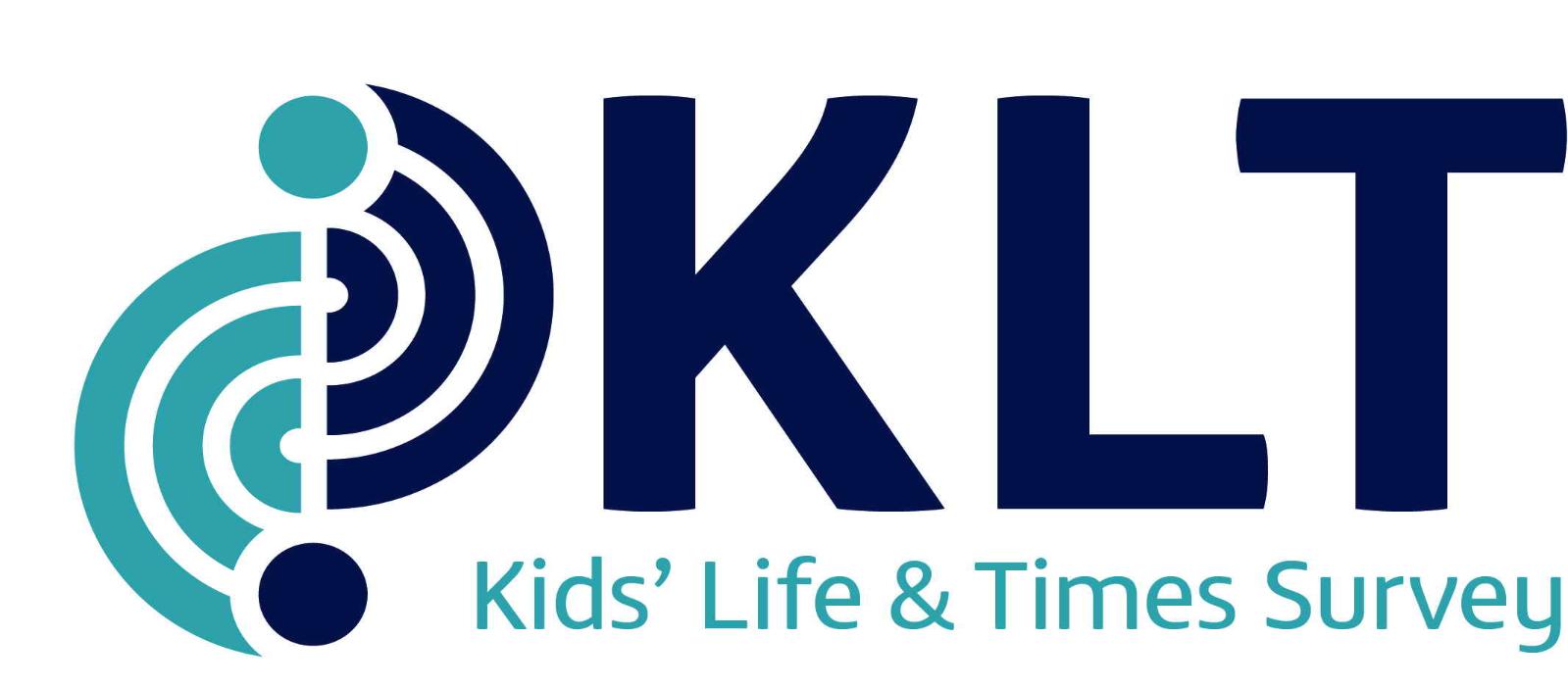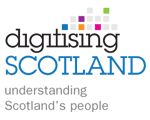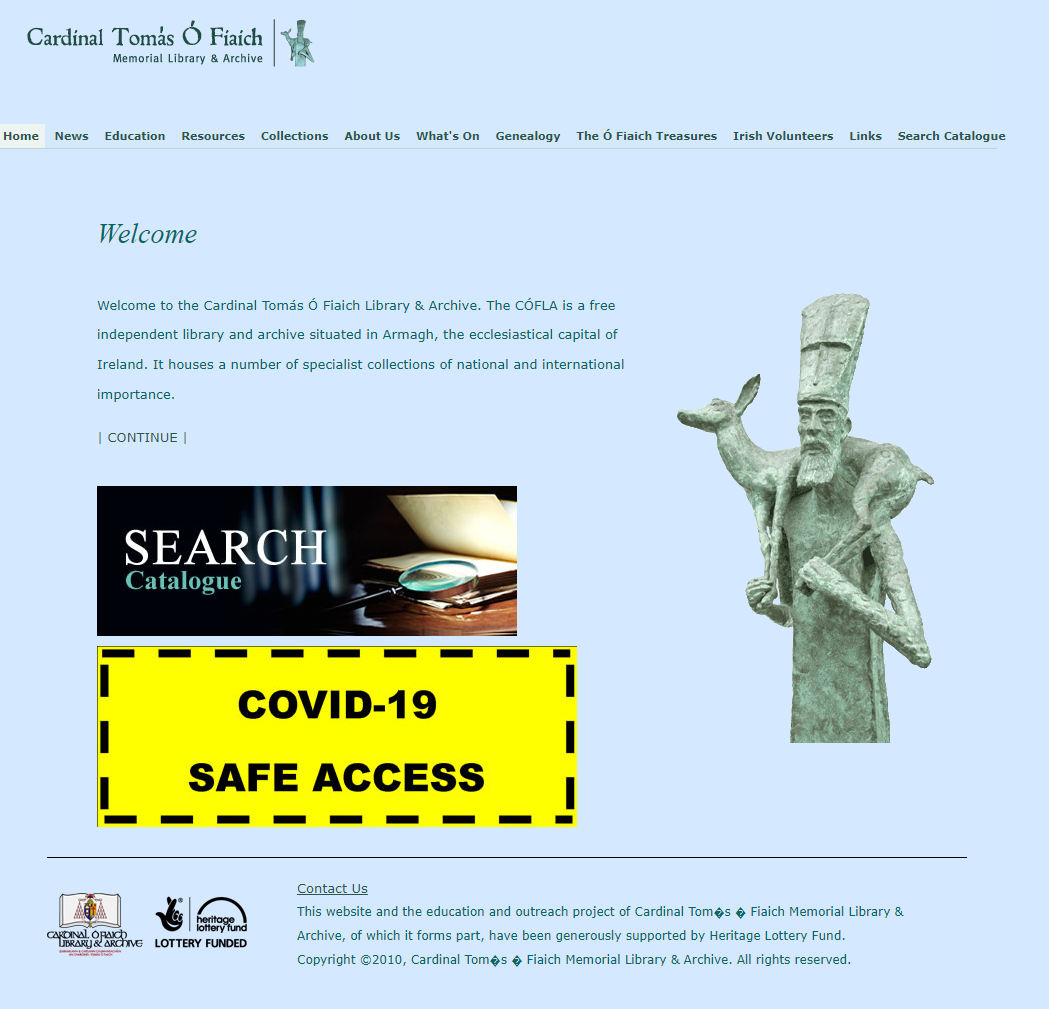2020-2021
WW1 Community Platform
http://ww1digitalportal.org.uk
|
|
The development of a sustainable archive and portal to digital content created as part of the WW1 Engagement Centres’, the activities of engagement-centre sponsored WW1 community projects, and through HLF-funded Centenary community projects, is at the heart of this proposal. Harnessing and sustaining ‘new knowledge’ generated by WW1 Centenary community projects, this cross-cutting and cross-Centre initiative will focus on development strategies relevant especially to young people – the born-digital generation – as well as foster greater inter-generational sharing of digital resources often created in the first instance by older people through HLF-funded and other centenary community projects. Key Aims:
To achieve these aims the provision of a sustainable and substantial archive and portal to the digital resources created through HLF-funded activities is required. These projects have produced a plethora of different computerised data covering an extremely diverse range of topics. By their nature many community groups are transitory and this means that the critical building blocks of knowledge, understanding and cross-generational intercourse are at risk. New digital data comprising images, texts, sound and film are all products of the Centenary. Put simply without preserving the base datasets deriving from these Centenary community engagements, we cannot build on the legacy of this work, and the worst-case scenario is that the content itself will be lost. Please see link for full website http://ww1digitalportal.org.uk/ |
The Ballykinlar History Hut
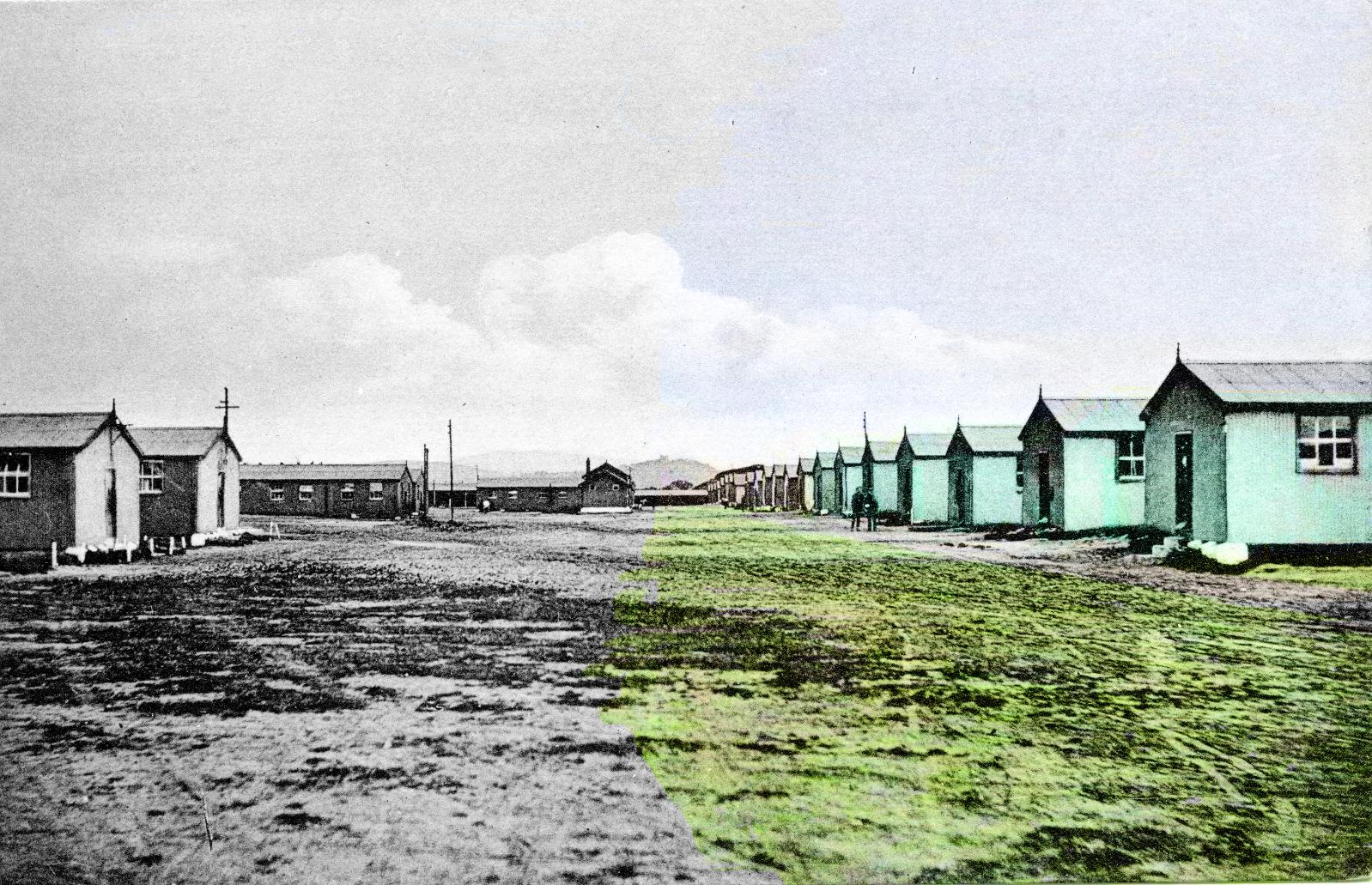 Down County Museum is pleased to confirm the receipt of EU PEACE IV funding for the development of the ‘Ballykinlar History Hut’, building positive relations project. The project hopes to consider myths and perceptions of past lives lived within Ballykinlar Camp, offering a unique understanding on how this past links to our future; taking wisdom from what went before, and building it into our future learning while developing approaches to culturally clashing situations.
Down County Museum is pleased to confirm the receipt of EU PEACE IV funding for the development of the ‘Ballykinlar History Hut’, building positive relations project. The project hopes to consider myths and perceptions of past lives lived within Ballykinlar Camp, offering a unique understanding on how this past links to our future; taking wisdom from what went before, and building it into our future learning while developing approaches to culturally clashing situations.
This project is supported by the European Union’s PEACE IV Programme, managed by the Special EU Programmes Body (SEUPB). Primary objectives of the project are The promotion of positive relations characterised by respect, where cultural diversity is celebrated, and people can live, learn and socialise together, free from prejudice, hate and intolerance.
A strong community engagement programme will be key, and working with our project partners at Queen’s University Belfast, Centre for Data Digitisation and Analysis & Living Legacies 1914-18, Public Engagement Centre, we will provide opportunities for sustained, meaningful and purposeful connections between individuals and groups of different backgrounds, on a cross border basis. The project will pay particular attention to minority groups and those who traditionally have been marginalised in society so that opportunities will be created that allows for a greater degree of participation and integration within modern society. It is hoped that strong local partnerships will be forged, an outcome already greatly supported through previous EU PEACE money programmes.
The Chairperson of Newry, Mourne and Down District Council Councillor Mark Murnin explained ‘The Council is very excited to be working with the CDDA at Queen’s University Belfast to create a shared community resource and archive. This EU funded project will focus on the use of Ballykinlar Camp in the first half of the 20th century, particularly during the period 1914-21, by engaging with local people, digitising 2,000 artefacts and creating a virtual experience for the recreated Ballykinlar History Hut at Down County Museum’.
Marking this Decade of Centenaries, Down County Museum will recreate and provide interpretation of a 1900s period timber ‘Armstrong Hut’, based on an example salvaged from Ballykinlar Camp in 2012. The hut will be recreated in the central courtyard of Down County Museum and made open to the public by September 2019. The ‘history hut’ will be a focal point for the community engagement element of the project, and will enable local people to come together to preserve the memories and heritage of those who lived within the Ballykinlar Camp, telling the stories of its occupants throughout its many periods of use.
The ‘Ballykinlar History Hut’ project will provide the repository for much of the collected narratives, photographs, newspaper clippings, documents, letters and keepsakes, providing access to this significant period in the past, and a vivid picture of what life for soldiers, internees and refugees would have been like.
For more information please click here.
The Inniskillings Museum
http://www.inniskillingsmuseum.com/
|
|
The Inniskillings Museum is an accredited museum and a registered charity located at Enniskillen Castle in County Fermanagh, Northern Ireland. The museum has an extensive collection relating to the two Inniskilling regiments raised in 1688 - the Royal Inniskillings Fusiliers and the 5th Royal Inniskilling Dragoon Guards. The museum collection comprises more than 30,000 artefacts and 150,000 paper and print archives from all around the world. This project will aim to create and deliver digital representations of irreplaceable historical documents, letters, diaries, maps and photographs relating to the Royal Inniskilling Fusiliers, in order to improve access to, and foster a greater understanding of, the materials held in the museum’s archives. The pre-1900 archives are at greatest risk primarily due to their age, but also due to their use and storage over the past decades, and it is this collection of unique and irreplaceable documents that Access Inniskillings will focus on. Project Outputs
|
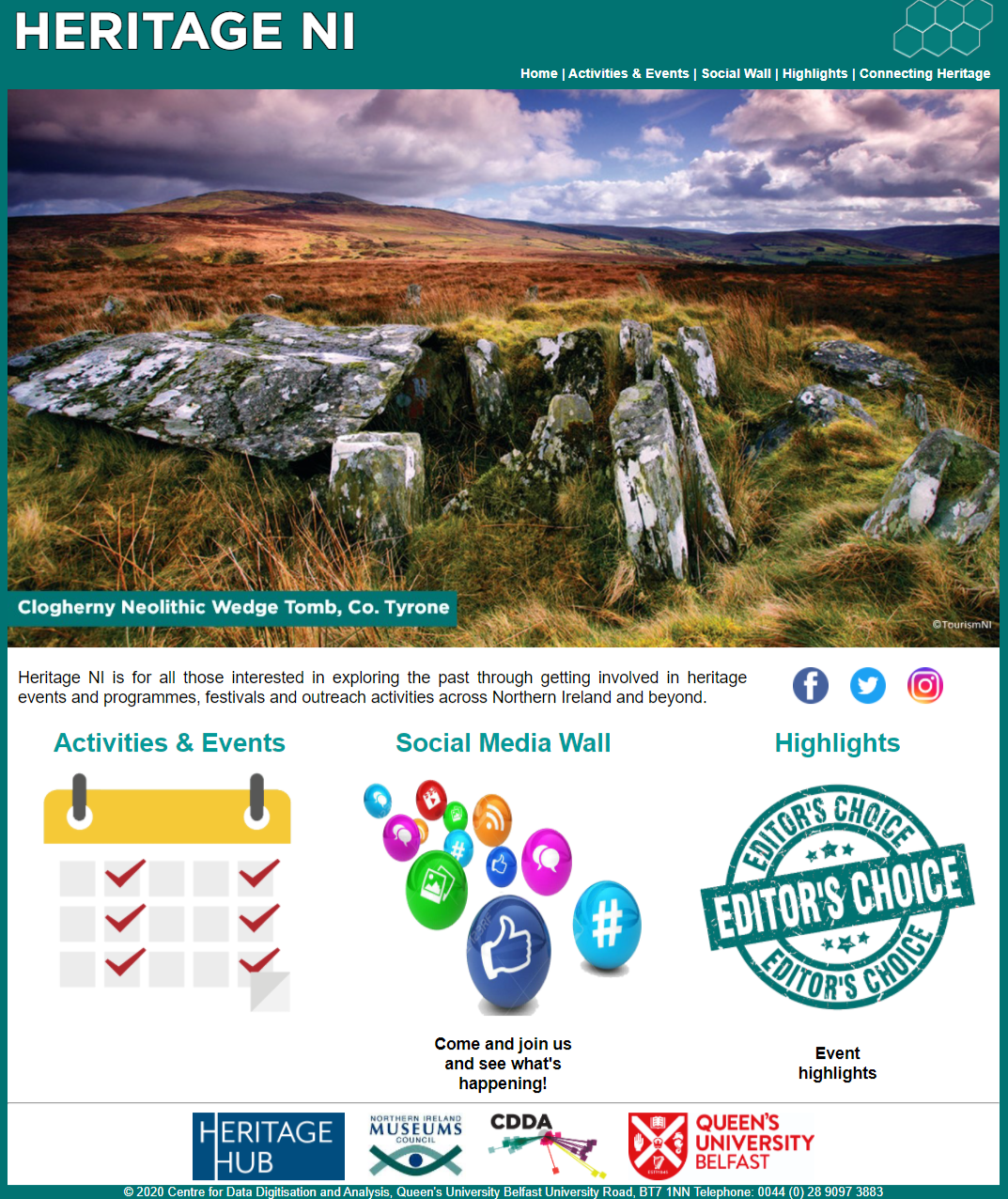 |
Heritage NI is for all those interested in exploring the past through getting involved in heritage events and programmes, festivals and outreach activities across Northern Ireland and beyond. |
| https://www.heritageni.org/HeritageNI/ | |
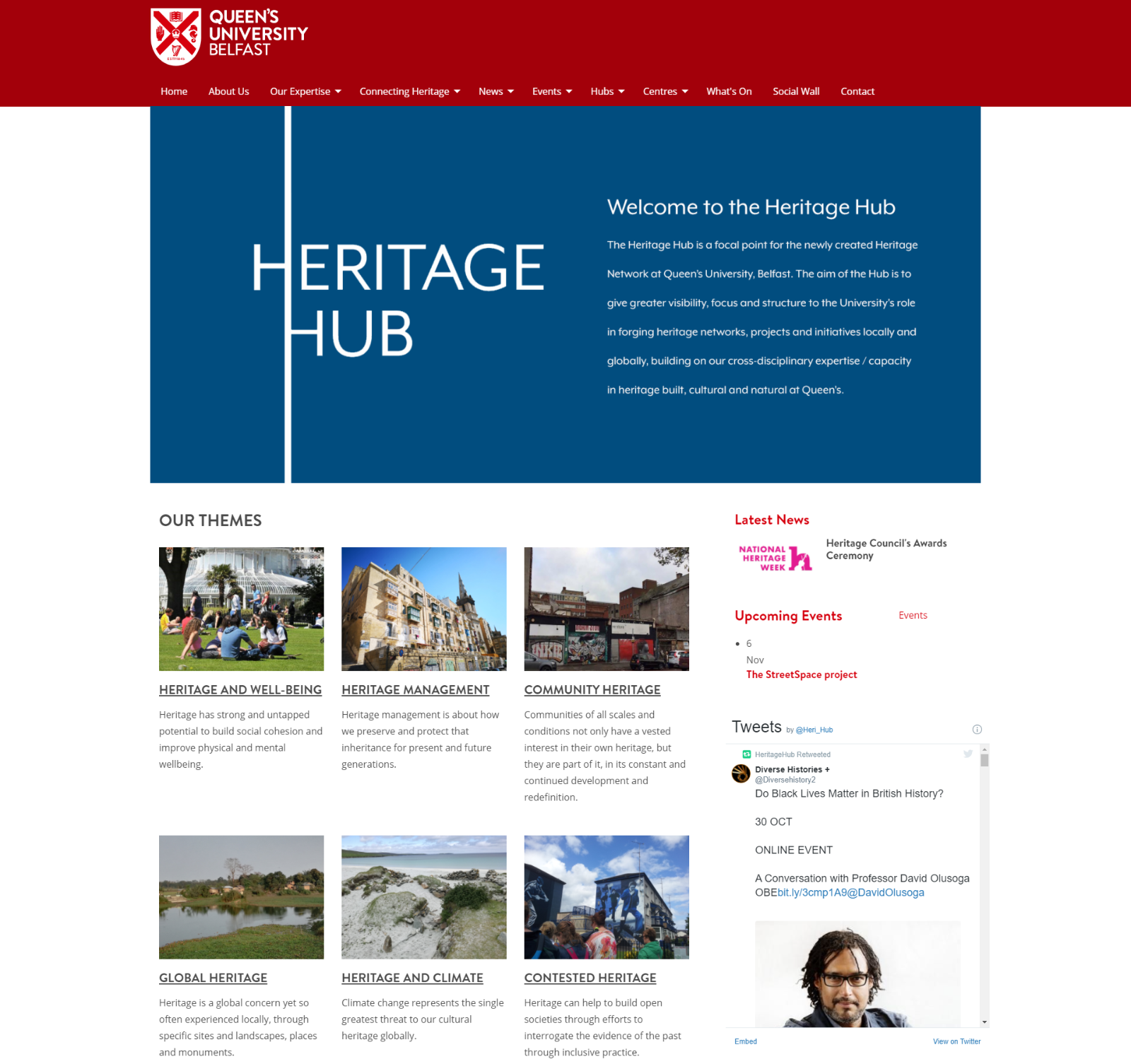 |
The Heritage Hub is an initiative that forms part of the University's 'Engaged Research' strategy and programme. The aim of the Hub is to connect external heritage groups, organisations and bodies to university-based researchers, both at Queen's as well as more widely across the university and HE sector, within Northern Ireland, the UK, Ireland and beyond. Bridging across Faculty structures and disciplines, the Heritage Hub welcomes all to share our experiences and expertise of heritage research practice and projects, through workshops, events, outreach, training, for mutual benefit, promoting a common belief in 'heritage for all'. |
| https://www.heritagehub.ac.uk/ | |
Heritage Hub
https://www.heritagehub.ac.uk/
|
|
The Heritage Hub is an initiative that forms part of the University's 'Engaged Research' strategy and programme. The aim of the Hub is to connect external heritage groups, organisations and bodies to university-based researchers, both at Queen's as well as more widely across the university and HE sector, within Northern Ireland, the UK, Ireland and beyond. Bridging across Faculty structures and disciplines, the Heritage Hub welcomes all to share our experiences and expertise of heritage research practice and projects, through workshops, events, outreach, training, for mutual benefit, promoting a common belief in 'heritage for all'. The Heritage Hub @ QUB is the point of contact for all from the wider community interested in how the past lives on today. This invitation is all-encompassing, for community groups, individuals, as well as policy-makers and professionals across the heritage sector, spanning cultural, natural and built heritage. At the core of Heritage Hub is a group of like-minded researchers from different subjects and disciplines at Queen's, whose interests in heritage are reflected in our Hub's six themes. Each of the themes has a pair of academic leads, and each is open to all those wishing to get involved with our Hub's networks, events and projects. The Hub is coordinated by Professor Keith Lilley, and the Hub themes are coordinated by Dr Leonie Hannan, Professor Audrey Horning, Dr M. Satish Kumar, Dr Agustina Martire, Dr Will Megarry, and Dr Olwen Purdue. |
Young Life and Times (Northern Ireland) Survey
http://www.ark.ac.uk/
|
|
All too often the opinions of young people are ignored when decisions are made about many of the issues involving them. However, the Young Life and Times Survey gives young people the chance to tell us about their experiences of school, and their views on politics, sectarianism and other social issues. By inviting respondents to suggest topics for the next year's survey, we make sure that the issues covered are relevant to the lives of young people in Northern Ireland today. From 1998 to 2000, Young Life and Times sought the views of all 12 to 17 year olds living in the same household as respondent to the Northern Ireland Life and Times survey. However, in 2003, the aims and methodology of the survey were changed. From 2003 onwards, Young Life and Times will record the attitudes of 16 year olds only. Further details can be found in the technical notes of the survey. Questions within the survey are grouped into modules. The range of modules varies from year to year. Whether you are at school or at college, work in the media, government or voluntary sector, or whether you are just interested in what the people of Northern Ireland think about the issues of the day, we hope you find something useful in this web-site. Browse the web-site and find out. Testimonial ‘I direct Young Life and Times (YLT) – an annual postal attitude survey of 16 year olds. It is in its 13th year now, which makes it one of the longest running surveys of this nature in the UK and Ireland. CDDA has been contracted to undertake the survey data digitisation for YLT for the last two years – a task which had previous been undertaken by contractors in England. YLT really benefitted from moving data digitisation and input to CDDA. Not only provide they a high data quality, follow a rigorous protocol in terms of data security and have local knowledge which improves data accuracy, but the close proximity of CDDA also meant that we saved time and any queries could be resolved face-to-face very quickly.’ Dirk Schubotz (YLT Director) |
Heritage NI
https://www.heritageni.org/
|
|
Heritage NI is for all those interested in exploring the past through getting involved in heritage events and programmes, festivals and outreach activities across Northern Ireland and beyond. |
Digitising Scotland
http://www.lscs.ac.uk/projects/digitising-scotland/
|
|
14 million birth records, 4 million marriage records and 11 million death records will be processed by the Digitising Scotland project The University of Edinburgh Longitudinal Study Centre – Scotland (LSCS) has received funding from the ESRC to create a multidisciplinary research database from historical vital events records. The Digitising Scotland (DS) project will digitise up to 24 million Scottish vital events record images (births, marriages and deaths) since 1856. This will allow research access to individual-level information on some 18 million individuals – a large proportion of those who have lived in Scotland since 1856. At the moment these records are kept as indexed images accessible from Scotland’s People, but this means that to extract data for research projects a researcher must first search for an individual record by name, and then manually transcribe the information they need themselves (eg cause of death, occupation, etc). This has made any large-scale research project impossible – a situation that the Digitising Scotland project will change. Work Packages The project contains 4 work packages:
For further information please visit :- http://www.lscs.ac.uk/projects/digitising-scotland/ Digitising Scotland,
|
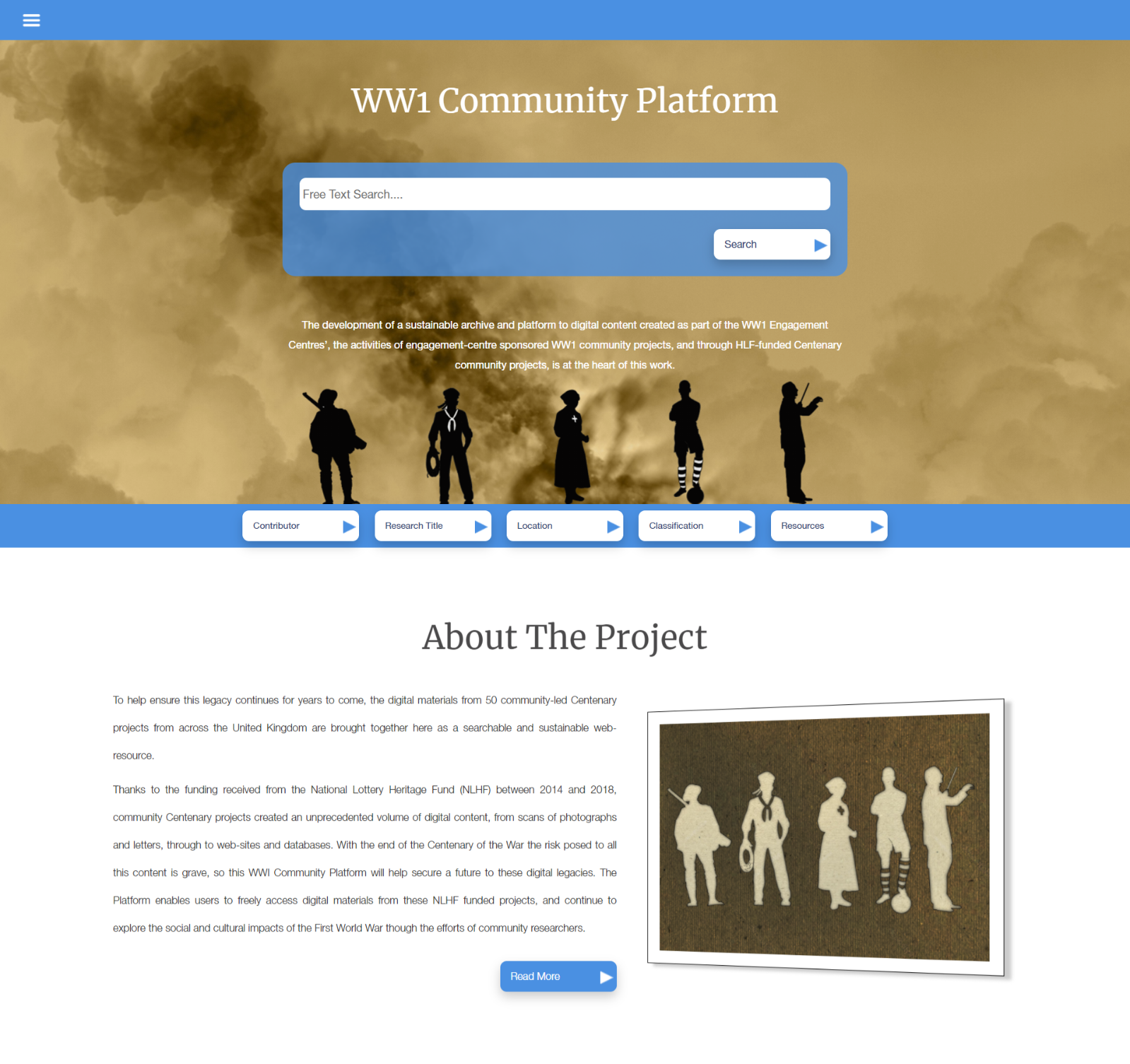 |
To help ensure this legacy continues for years to come, the digital materials from 50 community-led Centenary projects from across the United Kingdom are brought together here as a searchable and sustainable web-resource. Thanks to the funding received from the National Lottery Heritage Fund (NLHF) between 2014 and 2018, community Centenary projects created an unprecedented volume of digital content, from scans of photographs and letters, through to web-sites and databases. With the end of the Centenary of the War the risk posed to all this content is grave, so this WWI Community Platform will help secure a future to these digital legacies. The Platform enables users to freely access digital materials from these NLHF funded projects, and continue to explore the social and cultural impacts of the First World War though the efforts of community researchers. |
| http://ww1digitalportal.org.uk/ | |
Cardinal Ó Fiaich Library & Archive
http://www.ofiaich.ie/
|
|
In collaboration with the project team CDDA will support three identified aspects of the Cardinal Ó Fiaich Library & Archive that reflect the role of and impact on the Catholic church, of the events of 1921 (Government of Ireland Act/Partition/Establishment of the Northern Ireland state) The collections span a period from c1890 -1940 and are comprised of the papers of Cardinals Logue, O'Donnell and MacRory. |

